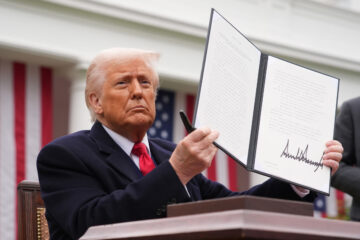Members of the House Oversight Committee are requesting documents on the yachts and planes owned by Russian oligarchs.
Even amid sanctions and global crises, the ultra-rich often find loopholes allowing them to circumvent various bans and come out all the better, from the Pandora Papers to the global relocation that usually happens in tandem with any talk of various wealth taxes.
Knowing this, U.S. lawmakers are now requesting documents on Credit Suisse’s potential financing of the yachts and planes owned by several Russian oligarchs under sanctions issued because of Russia’s war on Ukraine.
Credit Suisse did not immediately respond to a request for comment on Monday.
Why Is Credit Suisse Under The Spotlight?
Now, a letter asking for more information about the bank’s financing of the purchases of its wealthy Russian clients has been sent by the Committee on Oversight and Reform.
It was signed and sent by Chairwoman Rep. Carolyn B. Maloney (D-N.Y.), and Subcommittee on National Security, Chairman Rep. Stephen F. Lynch (D-Mass.) to Credit Suisse Chief Executive Thomas Gottstein.
The investment bank’s ties to oligarchs started receiving lawmaker and regulator attention after the Financial Times first reported that Credit Suisse cut exposure to $2 billion of loans that allowed Russian oligarchs to buy these yachts and jets.
The bank have also have instructed clients to “destroy documents” that prove connection to them.
“Giving the timing of this request and its subject matter, Credit Suisse’s action raises significant concerns that it may be concealing information,” the letter reads.
Credit Suisse has until April 11 to produce the requested documents, which date back to January 2017.
How Did Things Get This Bad?
While tensions between Russia and Ukraine had been on high alert since the 2014 annexation of Crimea, the conflict had largely stalled — and allowed formerly-sanctioned individuals to get back to normal life — over the last few years.
But on Feb. 24, Russia launched a full-scale invasion that continues for more than a month.
Ukrainian cities are facing a barrage of shelling and more than 10% of Ukraine’s population has become refugees in neighboring countries.
Along with numerous boycotts and company exits, the U.S., European Union and United Kingdom also sanctioned a number of individuals connected to Russian President Vladimir Putin.
These include Sberbank top executive Alexander Vedyakhin, Rosneft (RNFTF) top official Ivan Sechin, aluminum magnate Oleg Deripaska, and the country’s youngest billionaire (and Putin’s one-time son-in-law) Kirill Shamalov.
Meant to wound oligarchs enough to influence Putin to stop the destruction in Ukraine, the sanctions are supposed to severely limit the sanctioned individuals’ ability to access their wealth without, naturally, possibility of loopholes.
“This report raises significant concerns about Credit Suisse’s compliance with the severe sanctions imposed by United States and its allies and partners on the architects and enablers of Russia’s brutal and unprovoked invasion of Ukraine, including Russian President Vladimir Putin and oligarchs in his inner circle,” the committee chairs wrote.


